12 LinkedIn Scheduling Tools for 2024
Tired of the LinkedIn posting hustle? You’re not the only one. Many social media managers struggle with consistent and regular LinkedIn communication. Since LinkedIn isn’t just about LinkedIn company pages,...
Although it might not seem like it at first, artificial intelligence and automation are increasingly used in content marketing. No wonder – they can facilitate content curation, creation, its distribution, and the analysis of a substantial amount of data. It all becomes possible due to technologically-advanced tools, and luckily, many of them are already within your reach. Here’s how solutions based on AI marketing automation can influence your content marketing efforts.

Choosing only one definition of artificial intelligence is not that easy since there are so many of those. Yet, AI usually describes “machines that mimic cognitive functions” – functions, which we associate with human minds, such as learning or problem-solving. It’s often treated as automation of certain activities, for example, decision making. Still, “automation” simply means streamlining and often replacing psychical or mental labour by machines.
No matter the exact definition, the interesting thing about it is that both terms become increasingly popular – also in marketing. In fact, marketing automation is a rapidly growing industry, expected to reach $5.5 billion in 2019 – and that’s hardly surprising, given the benefits of automation and machine learning for marketing.
Basically, thanks to advanced algorithms, you can collect and analyse a significant amount of data, which is likely to influence your marketing strategy. That’s not the only advantage, though. If you’re involved in content marketing, AI and automation can easily help you discover relevant keywords, create and plan your content, as well as distribute and optimise it afterwards.

As the industry grows, so does the number of content marketing automation software available. Some of these solutions take advantage of automation, while others use artificial intelligence for smarter and targeted content marketing efforts. Here’s a look at the most popular use cases and tools.
When developing a brilliant content marketing strategy, it’s worth starting with analysing the data you already have and making sure you actually understand it. Only then you can proceed to create personas, and choose the best communication channels to reach your target audience. Even though it’s not extremely difficult to do so, analysing your data can simply be time-consuming. And that’s precisely why AI-based tools are being developed – to save time and effort.
Take IBM’s Lucy, as an example. Research, segmentation and planning targeted content marketing activities are just a few of its capabilities. Supposedly, Lucy is also able to compare different strategies and estimate which one will bring you the most benefits. Sounds unbelievable? Not at all. With the increasing popularity and shrinking prices of similar data analysis tools, they will soon have a wider influence on content marketing and its automation.
Automation is also finding its way to social media management more and more. Boosterbergenables the creation and effective management of Facebook and Instagram post boosting campaigns. By employing advanced process automation, the tool not only saves time but also optimizes campaign performance for digital marketing agencies, publishing houses, brands and e-commerce businesses.
What else can AI-based tools help you with? Searching for popular topics and relevant keywords, that will eventually drive more traffic to your website. MarketMuse is a great example of such a solution – it uses machine learning for better content marketing plans, including the analysis of chosen themes to recommend specific, worth-mentioning topics.
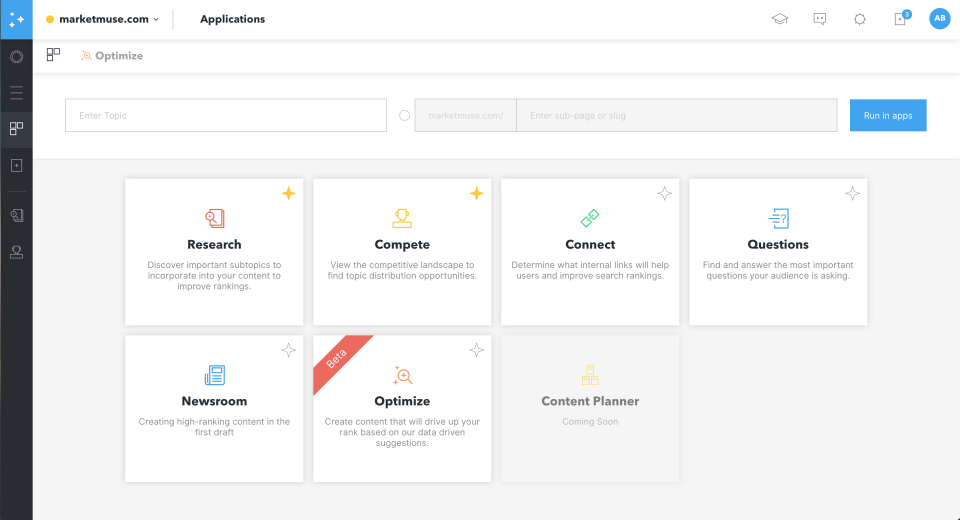
Concured also serves a similar purpose – it happens to use AI to identify topics that can be engaging for a specific audience, based on the popularity (and other metrics) of the content you’ve already published. But that’s not all – it also audits your content more carefully to indicate the best methods of its promotion via social media, and then analyses the results of your campaigns.
Acrolinx, on the other hand, aims not only to improve your content but also to keep it consistent. The goal here is to maintain your brand voice throughout the channels and follow the set content strategy. Plus, the tool makes it possible to manage your whole content marketing team, so that you truly keep an eye on the consistency of all texts that are being created.
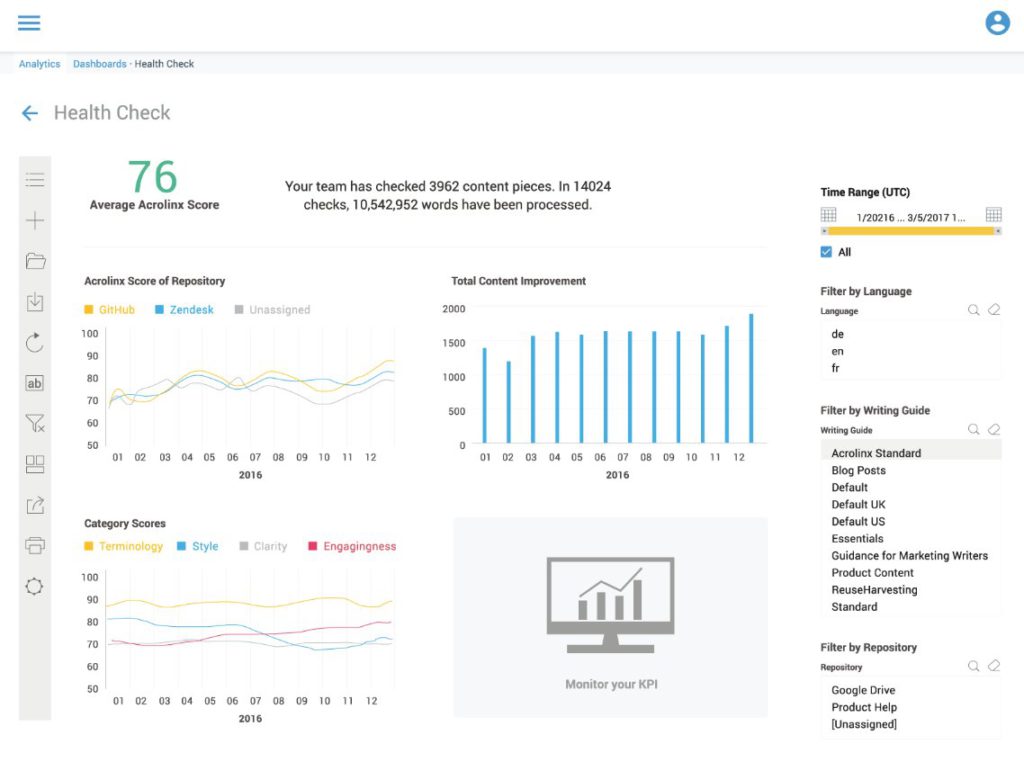
Interestingly enough, we can encounter automatically written content quite often nowadays, even though we’re not always aware of that. Obviously, machines can’t fully replace experienced copywriters and journalists – but in some cases, AI content generators can do a pretty good job with content creation. Especially when it comes to announcements and news, stock market changes, or simple reports.
At the moment, however, AI content generators are mostly capable of drafting actual texts in English, thanks to the specificity of the language. Reportedly, this method is already used by Yahoo and The Washington Post. If that’s true, then content generators might have a bright future – and Yseop aims to prove that, as the tool uses artificial intelligence to generate content in various languages, including French, German, Spanish and Japanese.
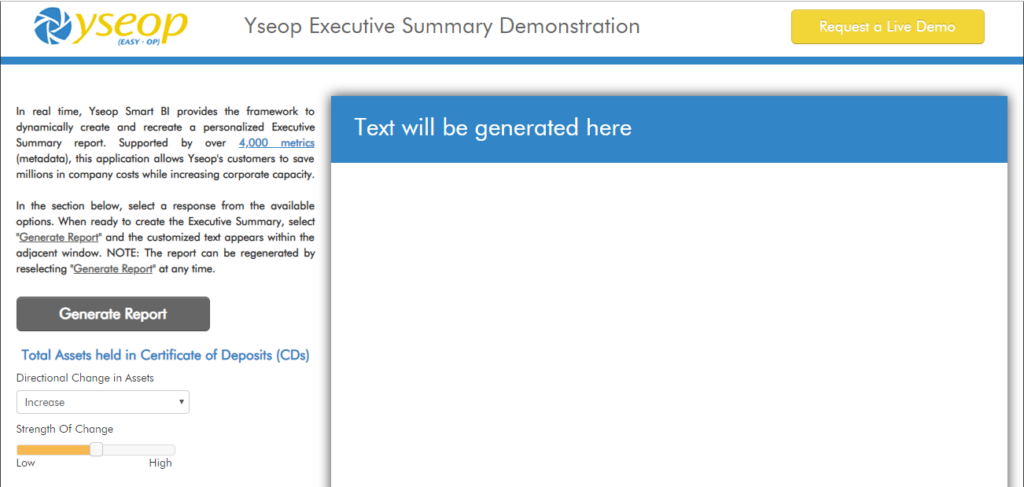
Coming back to generating reports, though, one of the most popular solutions created exactly for that purpose belong to Automated Insights. Basically, their software let you save time on organising and visualising data so that you can proceed to a careful analysis instead. Actually, these tools can not only turn actual data sets into useful and well-structured reports but also, depending on the chosen option, generate product descriptions for online stores or booking platforms.
We’re not going to repeat that the content is king (sic!). The more important issue here, though, is that this king can easily be dethroned without proper distribution. In many cases, content distribution ends with social networks, which are being managed without a clear social media plan. There is a way, though – using powerful tools for social media management. Click here and our messenger bot will be happy to help you.

Although there are many social media management tools to choose from, the majority offers pretty much the same features. Kontentino, however, is not just a simple calendar to schedule your posts across social networks – it lets you automate your content, as well as your tasks.
As a matter of fact, it can truly streamline the whole social media management process for your team. You can easily keep an eye on task progression and information flow among team members, reschedule and duplicate content with a drag-drop feature, send your drafts internally or to your clients for approval, and schedule your posts once they are all planed across social media platforms. Plus, you can also take advantage of the built-in UTM tag creator and evaluate the impact your posts had with advanced analytics, as well as use the “restricted audience” option to limit who sees specific content.
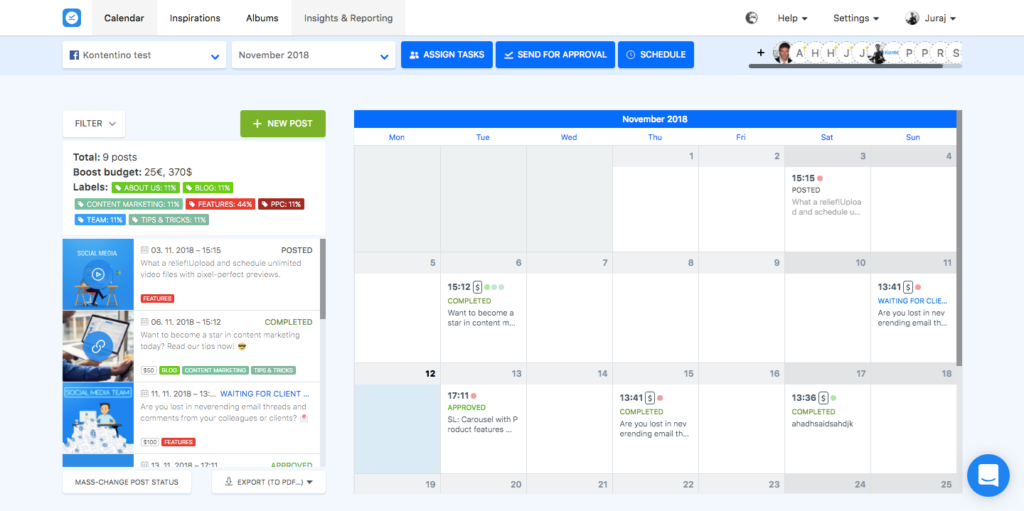
By using Keywee, on the other hand, you can identify specific groups that might be interested in your Facebook or Instagram profiles, since they have already expressed some interest in similar content to what you normally publish. What’s more, the tool also happens to recommend content that would fit well into your social media campaigns.
Speaking of marketing automation and personalization, though, you also shouldn’t miss out on chatbots. They can not only support your customer service team but also the distribution of your content. Popular Chatfuel will even help you promote your content “on request” – by sending a message in response to a comment (with its comment-to-messenger feature).
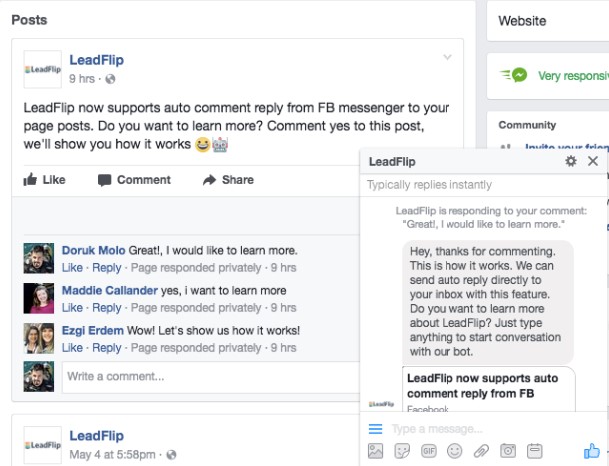
With so many AI & marketing automation tools available, though, it might be a good idea to take an omnichannel approach and distribute your content also beyond social media. For instance, by using web push notifications you can target the right audience that might actually be interested in certain pieces of your content. The solutions offered by PushPushGoserve as a good example – not only can you drive more traffic to your blog or website but also tailor the content recommendations to specific readers.

It’s clear to see that social media and content marketing becomes more and more affected by technology. And it doesn’t necessarily have to be a bad thing. By using brilliant marketing tools, you can save time, effort and money – especially since collecting and analysing data, as well as effective content creation and distribution are now easier than ever.
Even though machine learning is now widely used in marketing, it’s worth keeping in mind that an experienced content marketer should still remain in charge of the overall strategy, and pretty much all the marketing efforts. Automation and AI-based tools will not be entirely responsible for drawing conclusions from the available data and acting upon them any time soon, not to mention creating well-written and engaging content. That’s precisely why smart content marketing can’t be performed entirely by machines – and rightly so.
Still, marketing automation, especially if based on relevant content, well-thought-out targetting and personalised messages, has the power to engage prospects and convert them into loyal customers. In fact, companies that use marketing automation tools notice an increase in website traffic and the number of leads, as well as a better return on investment. With the adoption of technology increasing so rapidly, it’s only a matter of time before you start using automation and AI-based tools to your advantage.